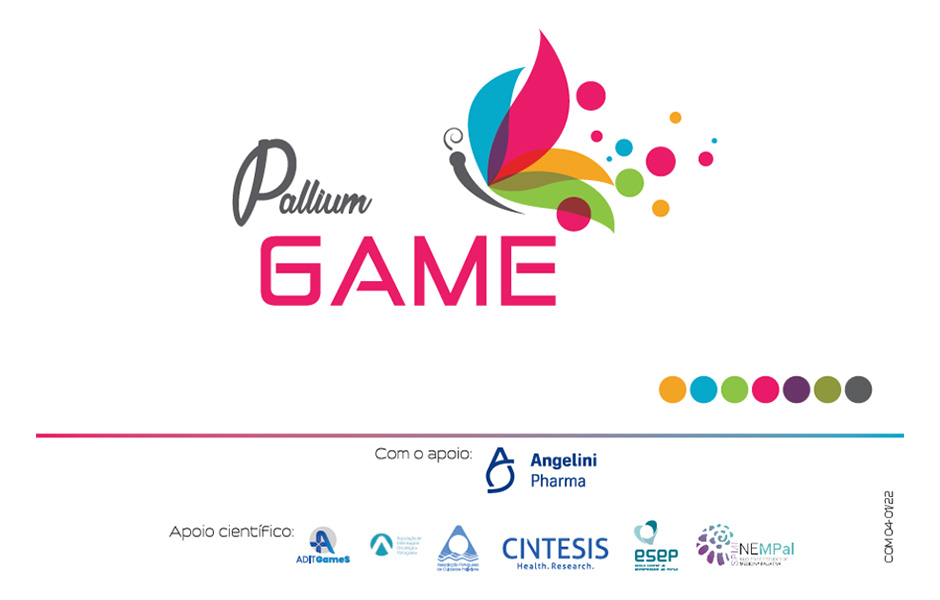A team from CINTESIS – Center for Health Technology and Services Research and ESEP – Nursing School of Porto has created the Pallium Game, a collaborative card game that aims to eliminate constraints and improve communication among patients, families, and health professionals in the context of Palliative Care.
The game will be available for free to all Palliative Care units and teams in the country, in a partnership with other entities, such as the Angelini Pharma Laboratory and the ADITGameS association.
“Initiating this type of conversation and approaching sensitive topics is difficult. So the challenge arose to create a card game to improve communication through a favorable environment for the expression of feelings and needs”, explains Carla Sílvia Fernandes, coordinator of the project.
According to the CINTESIS researcher and ESEP professor, one of the objectives of this game is to break the “conspiracy of silence” that is usual in this area and that prevents sensitive topics, often considered as real taboos, from being addressed.
The Pallium Game can be played with the patient, with the patient and the family, or only with the family. The game was validated by experts and was previously tested thanks to a partnership with “We Care“, a Palliative Care Unit located in Póvoa de Varzim that “opened the door” to the research team. The evaluation also involved the opinion of the health professionals involved.
The game is composed of 93 cards and starts with two cards, the “ice-breaker”. Whoever wants to start the game will choose one of the thematic areas covered: the impact, meaning of the disease, beliefs, family, and support.
Questions about experiences and changes in the course of illness, as well as religion, spirituality, fears, worries, and needs can be addressed. The answers are not compulsory. After at least two answers, the game proposes several interventions, e.g., the expression of life wishes.
“We use the game in several contexts, such as the doctor’s office or at the patient’s bedside, to talk openly about certain issues. And we can apply it in different stages and moments of the illness. That’s another advantage”, Carla Sílvia Fernandes points out.
At the end of the game, she says, people feel relieved to have addressed those issues. Despite the great emotional charge caused by the development of this strategy, the impact on participants is very positive. People cry, talk, expose their feelings.
“I feel relieved”. “I was never able to address these issues”. “This moment was very important for me”. These are some of the reactions of Palliative Care patients who have played the Pallium Game. They are people with oncological, but also with degenerative diseases, dementia, among many other pathologies, in different stages, from early to terminal phases.
Although the launch of the game is only officially planned for June 9, ADITGameS has a series of initiatives scheduled for the next three months. The first will be a Workshop on Pallium Game, integrated in the IV Conference of the Palliative Medicine Study Group – Out-of-the-box Therapies in Palliative Care, which will take place on March 19, at the Cupertino de Miranda Foundation, in Porto, and online. The event is organized by the Portuguese Society of Internal Medicine (SPMI) and the Palliative Medicine Study Group of this Society (SPMI-NEMPAL).
The Pallium Game was developed in the scope of the NursingGames – Empowering Professionals, People and Family Caregivers with Playful Strategies, a project integrated in CINTESIS and ESEP – Nursing School of Porto, with the participation of Carla Sílvia Fernandes (coordinator), Marisa Lourenço and Bruno Magalhães, Tânia Lourenço, Rita Figueiredo (from CINTESIS) and Belém Vale, who will be joined by Odete Amaral and Sofia Campos.
Meanwhile, other projects for developing health games are underway, particularly “exergames” for the rehabilitation of oncologic patients.

